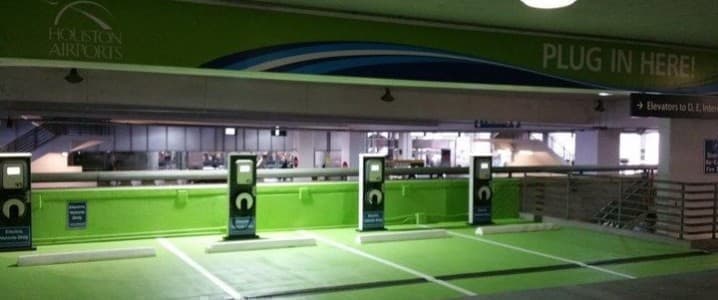Seven percent - that's the portion of electric vehicles and plug-in hybrids as a percentage of total sales as of the first quarter of this year. There were some 110,000 EVs on British roads at the end of March. And yet the country's National Grid is planning for 30 million in just two decades. Can it be done? Some would argue that the EV single-mindedness of European governments may blind them to all the challenges associated with the large-scale electrification of transport, such as the need to build charging infrastructure that is capable of handling the expected - or rather hoped-for - surge in EV sales in the coming years.
Indeed, infrastructure is a serious concern. A recent study from Deloitte found that almost as much as half of Britons would consider buying an electric car, but a third were concerned that there would not be enough charging points to make journeys hassle-free. This was the biggest problem with EVs, according to this third. Yet, according to the National Grid, this problem will be overcome by 2030 when the UK forecasts as many as 30 million EVs on the road.
How could such an ambitious goal be achieved? Well, with government help, and a lot of it. There are already some pretty attractive incentives: drivers buying EVs can get a plug-in car grant of up to 35 percent of the price of the car, up to a maximum of $4,370 (3,500 pounds). They are also exempt from the vehicle excise duty that other drivers have to pay for a new car, and they are also exempt from the London congestion charge. On top of that, the full price of the car is tax deductible, and parking is free in multiple locations across the country.
Even with these incentives, however, EVs make up less than 7 percent of total car sales, which raises the question of what else can be done to stimulate those respondents to the Deloitte study to stop mulling over buying an EV as their next car and just do it.
Related: Perfect Timing? China Announces Hydropower Megaprojects In Pakistan
One way is to advertise EVs as cheaper than internal combustion engine vehicles.
This may sound surprising, but according to research from Direct Line, a British insurance company, an EV does end up cheaper over its lifetime than an ICE car. While prices for electric cars are more than $6,000 higher, annual tax and maintenance costs are as much as 49 percent lower for an equivalent ICE car, research has revealed. That could be pretty incentivizing were it not for the fact that insurance costs for EVs are 25 percent higher than those for ICE cars. Why? Because of "current production costs and complexities involved in the calibration of computers used in these cars," according to Direct Line as quoted by Electrek.
So, for the time being, it seems that government incentives for EV drivers are not exactly enough to motivate a massive shift to EVs. And yet the UK has a deadline for phasing out internal combustion engine vehicles, and this deadline is approaching. There is nothing to replace them but EVs. The urge to do this sooner is so strong that the UK's top advisory body on climate change, the Committee on Climate Change, called on the government to move the deadline for the ICE car phase-out from 2035 to 2032 at the latest.
According to proponents of the shift, this target is perfectly achievable if the pressure on consumers to switch to EVs continues. Of course, it is a positive kind of pressure, featuring incentives and the feeling of doing good for the environment, and it is working. In June, as total car sales in the UK slumped by almost 35 percent, EV sales jumped by as much as 73.3 percent.
There is a caveat in these figures, however. "Many of June's registrations could be attributed to customers finally being able to collect their pre-pandemic orders, and appetite for significant spending remains questionable," said the chief executive of the Society of Motor Manufacturers and Traders, Mike Hawes.
Related: The Permian Could See Record Gas Production In 2021
Even so, over the longer term, EVs are still expected to dominate the transport landscape. In fact, the phase-out of ICE cars could be pushed back to 2030 instead of 2032, according to the head of Shell's British operations, Sinead Lynch. How? With "the right policy and incentives."
This has become the central motif running through the EV gospel: incentives and policy. In other words, people need to know they are getting a bargain by buying an EV instead of an ICE car, and they also need to be sure there will be plenty of places where they can charge this EV and charge it quickly. This latter part is something the carmakers betting on EVs need to address, but the issue of charging infrastructure - and better incentives - is in the hands of the government. This charging infrastructure must come before people flock to buy EVs by the millions, or people may not start buying them by the millions at all.
By Irina Slav for Oilprice.com
More Top Reads From Oilprice.com:
- Another Permian Oil Producer Files For Bankruptcy
- Oil Traders Discount Crude As Chinese Demand Weakens
- Russian Gas Giant Gazprom To Start Producing Clean Hydrogen


















